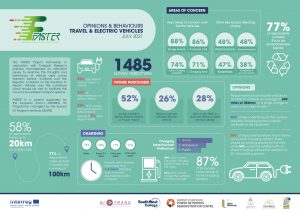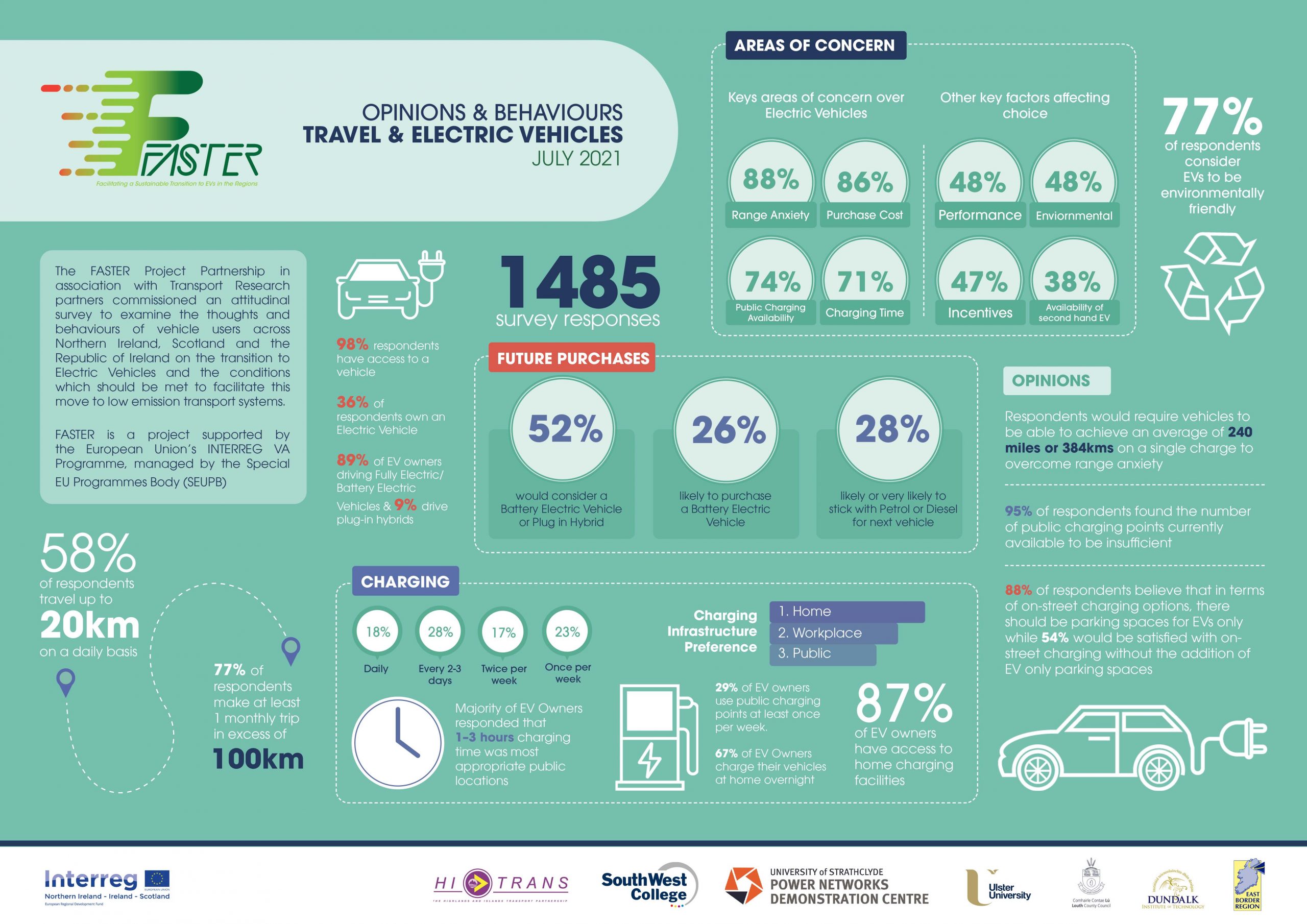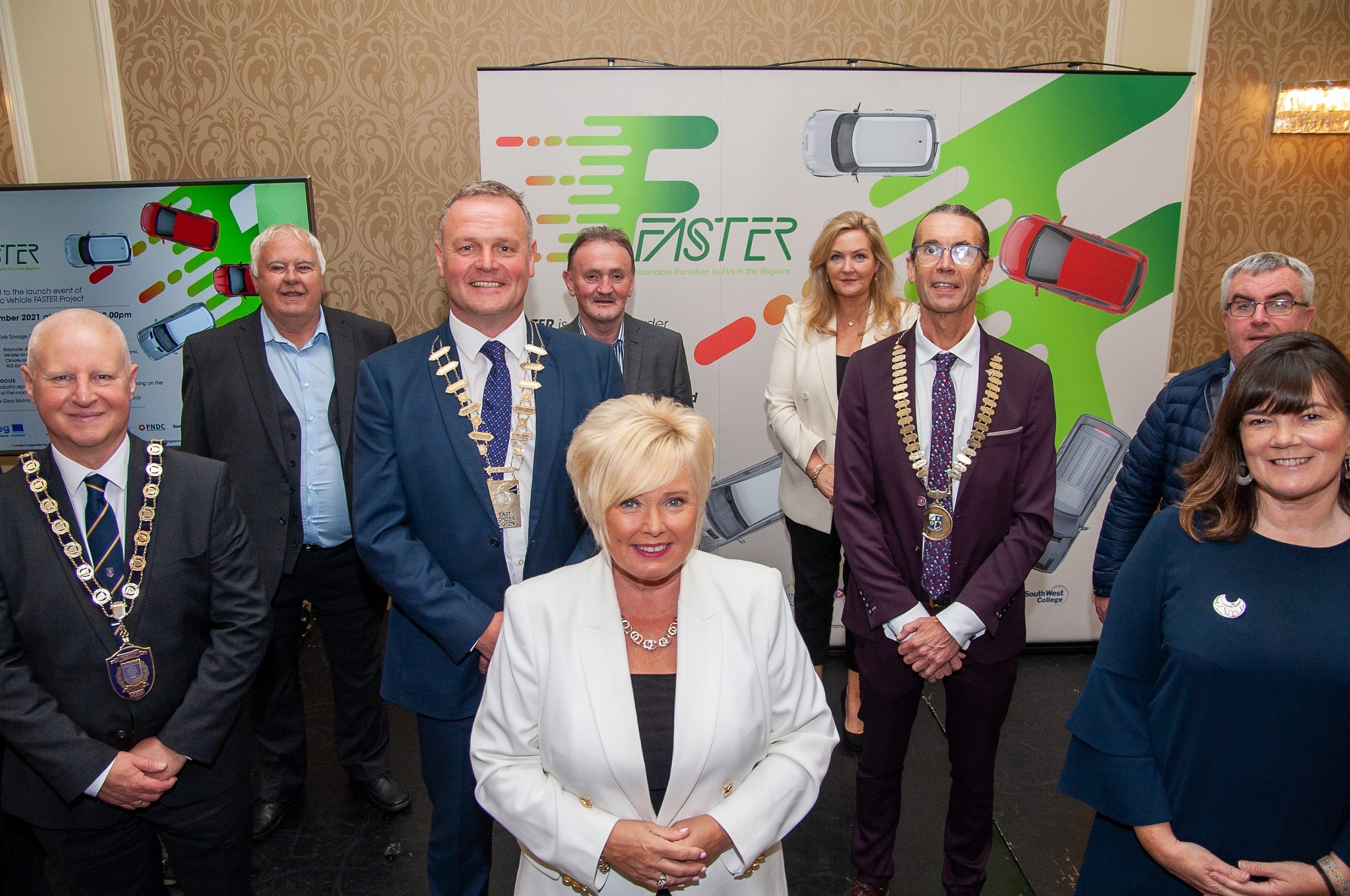A recent survey developed by Transport Research Partners in association with the FASTER Project partnership examined the attitudes of motorists and road users across Northern Ireland, Republic of Ireland (Border Region) and Western Scotland to the the usage of electric and low emission vehicles. 1,485 responses were received, with 52% of all respondents indicating that they were considering the switch to an electric vehicle when making their next vehicle purchase.
A project supported by the European Union’s INTERREG VA Programme, managed by the Special EU Programmes Body (SEUPB), the FASTER Project has received funding of €6.47 million to install 73 rapid (50 KW capacity minimum) charging stations across the project regions before May 2023 to help ease motorist concerns in respect of the public charging infrastructure provision. Match-funding for the project has also been provided by the Department for Infrastructure in Northern Ireland, the Department for Transport in Ireland and Transport Scotland
98% of drivers responding to the public survey reported having regular access to a private vehicle, with over a third of this surveyed currently owning a Battery Electric, Plug In Hybrid or Mild Hybrid vehicle. Key factors influencing survey respondents use of electric vehicles included the performance of the vehicles in comparison to traditional petrol and diesel powered engines, their benefits for the environment and the health of the motorist and the increasing availability of used electric vehicles on the market.
However, despite the growth in sales of electric and low emission vehicles in recent months, key concerns remain, particularly around the range and purchase cost of the vehicles. 88% of motorists reflected that the range capabilities of electric vehicles was a major factor in their decision making process. Motorists responding to the survey claimed that they would require vehicles to achieve a range of 240 miles on a single charge, despite findings that the average daily journey of those surveyed was just over 13 miles. The purchase price of electric vehicles when compared to traditionally fuelled vehicles was also of concern to 86% of motorists.
The FASTER Project will address concern over public charging infrastructure. 95% of all those questioned as part of the survey believe that the existing public charging infrastructure is insufficient, and infrastructure requirements forecast that up to 700 charging points will need to be installed each day across the UK to support the government’s target of banning the sale of all new petrol and diesel engine vehicles in 2030.
Reflecting on the survey results, Donal Monaghan, Faster Project Officer at South West College said:
‘This survey provides a very clear demonstration that there is a growing acceptance of electric and low emission vehicles across the programme regions. Motorists are seeing the benefits that these vehicles can bring but there remains a number of barriers affecting electric vehicle uptake, including cost, range anxiety and the current public charging provision.
With the role out of the FASTER Project infrastructure supported by a number of educational and awareness building campaigns, the project partners hope that we can alleviate the concerns of motorists and help them recognise that the benefits of electric vehicles will outweigh the challenges referenced.’
James Cooper, Transport Research Partners added:
“The level of engagement and open discussion supported by this survey will have a tangible effect in understanding and focusing knowledge on electric vehicles and the supporting infrastructure and will provide significant benefits for the FASTER Project and its activities moving forward.”
Further information about the FASTER Project is now available at www.fasterevcharge.com




